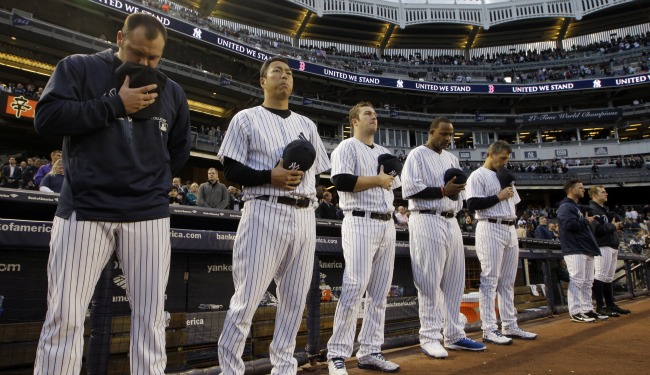During his press conference following the Boston Marathon bombings, President Obama denounced the perpetrators as “evil” and “cowardly,” contrasting their behavior with the heroic first responders who rushed to aid the injured: “What the world saw yesterday in the immediate aftermath of the explosions were stories of heroism and kindness and generosity and love.” He praised the “good people of Boston” as well as the virtues of the American spirit: “If you want to know who we are, who America is, how we respond to evil, that’s it: selflessly, compassionately, unafraid.”
The unity we presently feel doesn’t represent a kind of self-deception. Splitting under these horrific conditions allows us to weather the immediate trauma.
Obama’s words echo those of George W. Bush speaking on September 11, 2001: “Today, our nation saw evil, the very worst of human nature, and we responded with the best of America, with the daring of our rescue workers, with the caring for strangers and neighbors who came to give blood and help in any way they could.” In the face of a grave external threat, our leaders rush to offer us the same assurance: we may have been confronted by “the worst of human nature,” but Americans embody its finest virtues.
We are the heroes, they are the cowards.
We are motivated by love, kindness and generosity; they feel nothing but hatred.
We are good, they personify evil.
Leaders in other countries no doubt rely on similar language to comfort their people when facing an existential threat. It encourages unity on the home front and inspires patriotic feeling. It identifies the domestic goodness worth defending and mobilizes aggression against the enemy. While personal or political squabbling might dominate during times of peace, we put our differences aside when we face an external enemy. Praising the citizenry of Boston yesterday on MSNBC, Governor Deval Patrick said that “there’s something about America that causes us to come together” at times like this. True, but citizens in many other nations “come together” in the same way when facing a crisis.
Read the entire article on The Atlantic
